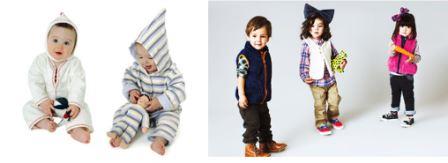The ecological cotton fabrics are here to stay!

A rising trend in the fashion industry worldwide is the use of green cotton fabric. Cotton fabrics already have various applications in our daily lives: -sports clothing or not, men, women and even baby clothes-, linen made from cotton are widely used by consumers. In this context, the increased ecological awareness of consumers and consequent turning them into organic products combined with the continuous efforts of the brands of different industries to adopt a greener profile, has led to increased demand for organic cotton and hence for ecological cotton fabrics with the fashion industry trying to adapt to this new development.
It should first be noted that cotton is the most important kind of textile fiber in the world, representing more than 1/3  of the total world demand for natural fibers. Although it is soft, light and comfortable and has a high absorbency and breathability, it is largely dependable upon the use of pesticides so it poses risks of allergies or dermatoses. In contrast, organic cotton is produced without the use of chemicals and is hypoallergenic so have begun to be marketed products made of it: shirts and pants, socks, pants, skirts and blouses, sheets and pillowcases, towels and bathrobes.
of the total world demand for natural fibers. Although it is soft, light and comfortable and has a high absorbency and breathability, it is largely dependable upon the use of pesticides so it poses risks of allergies or dermatoses. In contrast, organic cotton is produced without the use of chemicals and is hypoallergenic so have begun to be marketed products made of it: shirts and pants, socks, pants, skirts and blouses, sheets and pillowcases, towels and bathrobes.
 A sector of growing interest in ecological cotton fabric is the one of children’s clothing and layette. In countries such as the US and India the demand for such fabrics has increased, while the popularity of organic baby clothes are already high in Europe (especially the UK) and Japan. Indeed, in Europe, the organic cotton clothes represent 1/3 of children’s products market. This is no coincidence, as mothers prefer for their children quality fabrics that are safe for the skin and health, choosing those produced with natural and environmentally friendly ways.
A sector of growing interest in ecological cotton fabric is the one of children’s clothing and layette. In countries such as the US and India the demand for such fabrics has increased, while the popularity of organic baby clothes are already high in Europe (especially the UK) and Japan. Indeed, in Europe, the organic cotton clothes represent 1/3 of children’s products market. This is no coincidence, as mothers prefer for their children quality fabrics that are safe for the skin and health, choosing those produced with natural and environmentally friendly ways.
International brands in men’s and women’s fashion industry have also launched operations for the production and disposal of organic ecological fabrics, entering into partnerships with local growers and farms as well as the supply chain. It is worth mentioning that the global fashion apparel industry accounts for approximately 2% of global GDP, and nearly 75% of world fashion market is concentrated in Europe, the USA, China and Japan.
Still, it should be noted that the generation of Millenials (born in the period 1980-2000) is expressing an increased interest for organic products and are willing to pay more to acquire them, while they are used to buy more clothes and more often than the previous generations did. Besides, it should be borne in mind that until 2020 the current generation will further increase the purchasing capacity, thus playing a catalytic role in shaping future consumer patterns of the fabric and clothing.
Based on these data, Greece can play a key part in supplying the world market with ecological cotton fabrics, as according to the FAO (World Food and Agriculture Organization) in 2013 was the ninth largest country of processed and raw cotton producer worldwide, with China, India, USA, Pakistan and Brazil occupy the top positions. In Europe, even Greece in the same year was the main country of raw and processed cotton producer and the largest exporter of processed cotton. On a global scale is the seventh biggest exporter of this product with the bulk of its exports being absorbed from Turkey, Egypt, China, Indonesia, Pakistan, Japan and Italy.
Similarly, the five countries with the largest exports of processed cotton worldwide is the USA, India, Australia, Brazil, and Uzbekistan, while those with larger imports are China, Turkey, Indonesia, Bangladesh and Vietnam, as there is observed a significant increase in demand for ecological cotton fabric. It is expected for the first time in the last five years, that the 2015-2016 global cotton demand would surpass global production.
 Consequently, ecological cotton fabrics are becoming fashion as consumers and brands insist on natural products that contribute to environmental protection and health. In this context, Greece can be an important global and European market supplier of organic cotton to produce such fabrics, particularly given the long tradition and expertise that has the country in the field of spinning-textile industry, consumer distrust and brands on the authenticity of cotton from countries like China, India, Pakistan, Uzbekistan, and Turkey (due to the lack of appropriate legal standards and controls for organic products) but also the new CAP (Common Agricultural Policy ) that gives incentives for Greek farmers to deal with organic farming.
Consequently, ecological cotton fabrics are becoming fashion as consumers and brands insist on natural products that contribute to environmental protection and health. In this context, Greece can be an important global and European market supplier of organic cotton to produce such fabrics, particularly given the long tradition and expertise that has the country in the field of spinning-textile industry, consumer distrust and brands on the authenticity of cotton from countries like China, India, Pakistan, Uzbekistan, and Turkey (due to the lack of appropriate legal standards and controls for organic products) but also the new CAP (Common Agricultural Policy ) that gives incentives for Greek farmers to deal with organic farming.
References : www.ers.usda.gov, www.eartheasy.com, www.futureharvest.org, www.economictimes.com, www.businessgreen.com, www.businessoffashion.com, www.cottonconnect.org, www.business2community.com, www.fibre2fashion.com, www.organicfacts.net, www.agrochart.com, www.intracen.org, www.fao.org

